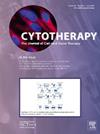加速不育检测:Symcel calScreener+在无损连续监测系统中直接接种,可在<3天内取得结果
IF 3.7
3区 医学
Q2 BIOTECHNOLOGY & APPLIED MICROBIOLOGY
引用次数: 0
摘要
背景,无菌检测是细胞和基因治疗产品(cgtp)的关键质量控制过程,其中快速可靠地检测微生物污染物对于满足监管标准和确保患者安全至关重要。传统的无菌检测方法,需要长达14天的时间,延迟批放行并增加成本。Symcel calScreener+采用等温微量热法,以非破坏性和产品基质无关的方式更快地进行微生物污染物的表型检测。本研究评估了calScreener+ 3天无菌试验的准确性、可靠性、检测时间和鲁棒性,以解决小样本量和高真核细胞浓度的复杂基质等挑战。calScreener+在低至0.05 ml的产品样品中监测代谢活性,以检测微生物生长。验证研究评估了与监管指南相关的20种微生物菌株的检出限(LOD)、检测时间、可比性和特异性范围。评价采用TSB和FTM培养基在25°C和35°C的双重温度下进行,主要微生物包括金黄色葡萄球菌、铜绿假单胞菌、白色念珠菌、巴西曲霉和痤疮表皮杆菌。在不同的条件下,包括温度波动和生长抑制剂,评估了鲁棒性和坚固性。统计分析证实了可靠性和可重复性。calScreener+的LOD为5 CFU,即使在具有高真核细胞浓度(10^ 6-10 ^8个细胞/ml)的复杂基质中,也能在3天内得出结果。24小时内检测金黄色葡萄球菌、铜绿假单胞菌、白色念珠菌;巴西依蚊在30小时内;和C.痤疮60小时内。它有效地检测了与无菌检测相关的广泛微生物,包括关键污染物,如伯克霍尔德菌复合体和青霉菌物种,在不同条件下具有强大的性能。结论:Symcel calScreener+为cgtp的无菌检测提供了一种灵敏、快速的解决方案,能够在几天内而不是几周内检测出微生物污染物的表型。其小样本量最大限度地减少了材料的使用,是有限批量的理想选择。通过消除浓缩步骤和减少检测时间,calScreener+简化了工作流程,提高了操作效率,将其定位为药品质量控制的变革性工具。本文章由计算机程序翻译,如有差异,请以英文原文为准。
Accelerating sterility testing: Symcel calScreener+ achieves results in <3 days with direct inoculation in non-destructive and continuous monitoring system
Background & Aim
Sterility testing is a critical quality control process for cell and gene therapy products (CGTPs), where rapid and reliable detection of microbial contaminants is essential to meet regulatory standards and ensure patient safety. Traditional sterility testing methods, requiring up to 14 days, delay batch release and increase costs. The Symcel calScreener+ utilizes isothermal microcalorimetry to enable faster, phenotypic detection of microbial contaminants in a non-destructive and product-matrix-independent manner. This study evaluates the calScreener+ 3-day sterility test for its accuracy, reliability, detection times, and robustness in addressing challenges such as small sample volumes and complex matrices with high eukaryotic cell concentrations.
Methodology
The calScreener+ monitors metabolic activity in product samples as low as 0.05 ml to detect microbial growth. Validation studies assessed its Limit of Detection (LOD), detection times, comparability, and specificity range across 20 microbial strains relevant to regulatory guidelines. The evaluation used TSB and FTM media at dual temperatures (25°C and 35°C) and included key microorganisms such as Staphylococcus aureus, Pseudomonas aeruginosa, Candida albicans, Aspergillus brasiliensis, and Cutibacterium acnes. Robustness and ruggedness were assessed under varying conditions, including temperature fluctuations and growth inhibitors. Statistical analyses confirmed reliability and reproducibility.
Results
The calScreener+ demonstrated an LOD of <5 CFU and delivered results within 3 days, even in complex matrices with high eukaryotic cell concentrations (10^6–10^8 cells/ml). Detection times included S. aureus, P. aeruginosa, and C. albicans within 24 hours; A. brasiliensis within 30 hours; and C. acnes within 60 hours. It effectively detected a broad range of microorganisms relevant to sterility testing, including critical contaminants such as Burkholderia complex and Penicillium species, with robust performance under varying conditions.
Conclusion
The Symcel calScreener+ offers a sensitive and rapid solution for sterility testing in CGTPs, enabling phenotypic detection of microbial contaminants within days instead of weeks. Its small sample volume minimizes material use, ideal for limited batch sizes. By eliminating enrichment steps and reducing detection times, the calScreener+ streamlines workflows and enhances operational efficiency, positioning it as a transformative tool for pharmaceutical quality control.
求助全文
通过发布文献求助,成功后即可免费获取论文全文。
去求助
来源期刊

Cytotherapy
医学-生物工程与应用微生物
CiteScore
6.30
自引率
4.40%
发文量
683
审稿时长
49 days
期刊介绍:
The journal brings readers the latest developments in the fast moving field of cellular therapy in man. This includes cell therapy for cancer, immune disorders, inherited diseases, tissue repair and regenerative medicine. The journal covers the science, translational development and treatment with variety of cell types including hematopoietic stem cells, immune cells (dendritic cells, NK, cells, T cells, antigen presenting cells) mesenchymal stromal cells, adipose cells, nerve, muscle, vascular and endothelial cells, and induced pluripotential stem cells. We also welcome manuscripts on subcellular derivatives such as exosomes. A specific focus is on translational research that brings cell therapy to the clinic. Cytotherapy publishes original papers, reviews, position papers editorials, commentaries and letters to the editor. We welcome "Protocols in Cytotherapy" bringing standard operating procedure for production specific cell types for clinical use within the reach of the readership.
 求助内容:
求助内容: 应助结果提醒方式:
应助结果提醒方式:


